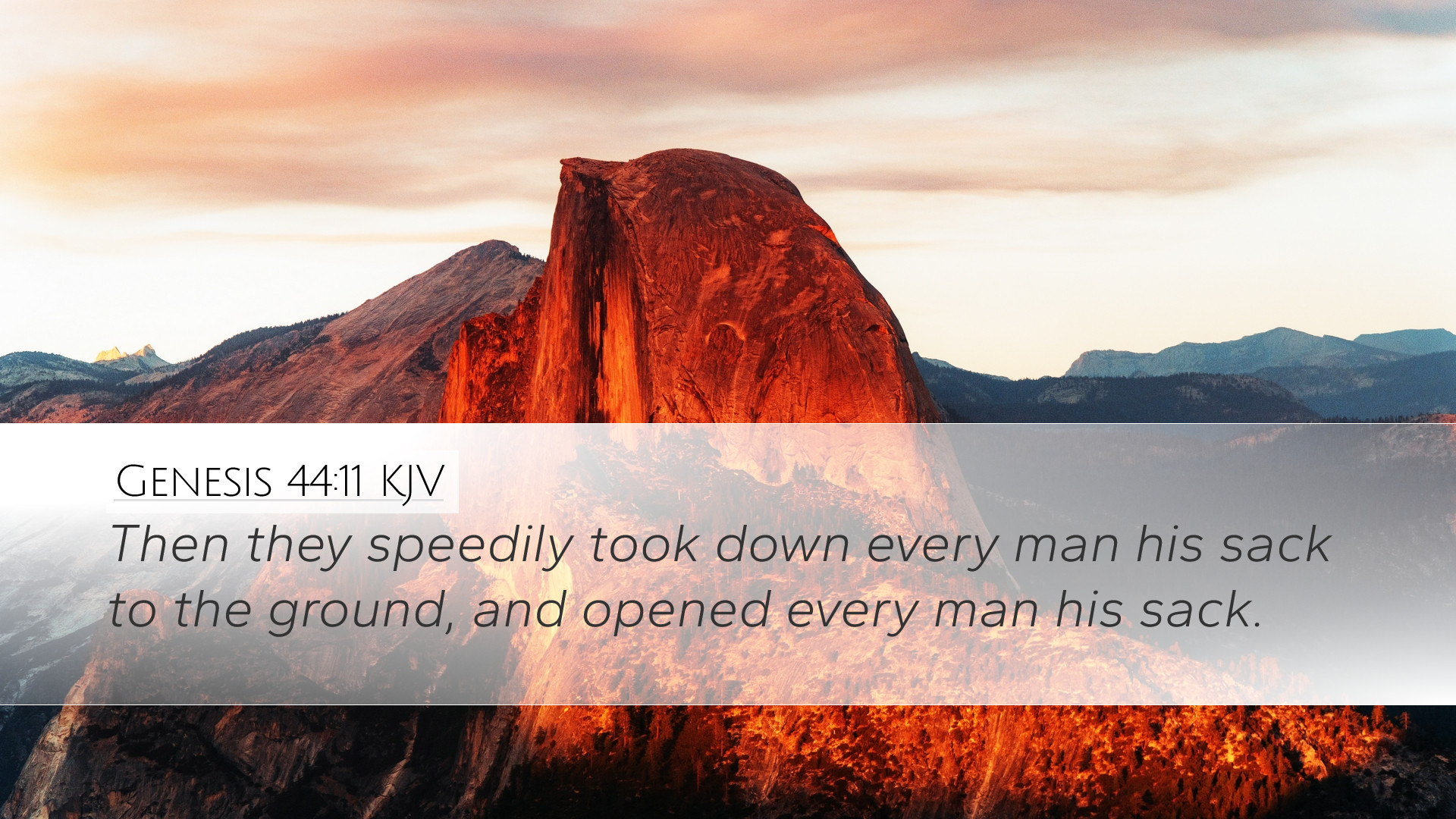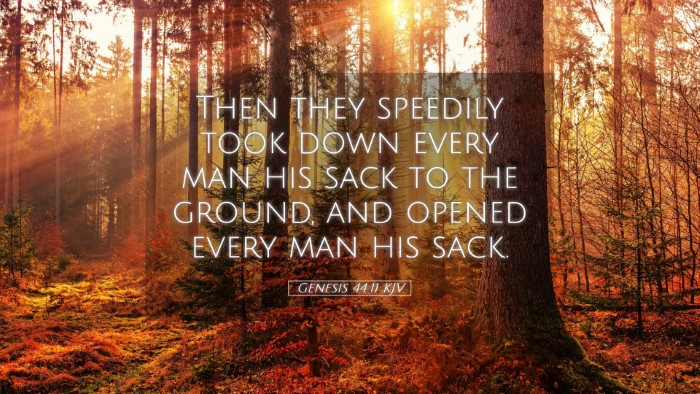Genesis 44:11 – Commentary Summary
Verse Context: Genesis 44:11 is situated in a narrative where Joseph, having been elevated to a position of power in Egypt, tests his brothers who had previously wronged him. The verse reads:
“Then they hurried, and every man took his bag down to the ground, and opened his sack.”
This scene is pivotal, demonstrating the unfolding of both divine providence and the moral reckoning of Jacob's sons.
Insights from Public Domain Commentaries
Matthew Henry’s Commentary
Matthew Henry emphasizes the theme of justice and redemption evident in this passage. He explains how the act of opening their sacks reflects the anxiety and guilt felt by the brothers. Their hurried actions reveal their fear of divine judgement, as they had previously sold Joseph into slavery. Henry points out that their immediate compliance signifies an acknowledgment of wrongdoing.
- Guilt's Manifestation: The brothers’ fear upon discovering the silver cup in Benjamin’s sack is a direct result of their past sins.
- Divine Providence: Henry illustrates that God orchestrated these events for the ultimate reconciliation of the family.
Albert Barnes’s Notes on the Bible
Albert Barnes provides detailed analysis on the importance of the cup found in Benjamin's sack. He postulates that the cup symbolizes authority and divine omniscience. The act of taking the cup arises as a test by Joseph, aiming to provoke a heartfelt response from the brothers.
- The Significance of the Cup: The cup, often associated with blessings or curses, carries weighty implications and unveils the spiritual state of the brothers.
- Fear and Revelation: Barnes relates their hurried actions to spiritual awakening, showcasing their transition from deceit to transparency.
Adam Clarke’s Commentary
Adam Clarke’s commentary highlights the role of the brothers’ prior injustices in shaping this tense moment. Clarke identifies the emotional and psychological elements at play, suggesting that the brothers' past sins have come to haunt them, creating an atmosphere of dread as they confront potential consequences.
- Psychological Depth: Clarke suggests that their fear underscores the weight of unresolved guilt.
- The Foreshadowing of Repentance: This scene anticipates a transformative moment for the brothers, indicative of repentance as they grapple with their moral failures.
Theological Themes
The layered meanings within Genesis 44:11 reveal vital theological themes relevant to pastors, students, and theologians:
- The Nature of Guilt: The narrative emphasizes that unresolved guilt leads to fear, a notion validated through the brothers' response.
- Divine Sovereignty: It showcases God's control over historical events, weaving human actions into a larger redemptive tapestry.
- Reconciliation: The testing of the brothers by Joseph is an emblem of restorative justice, pushing them toward acknowledgment of their past sins and leading to eventual forgiveness and familial unity.
Applications for Ministry
For pastors and church leaders, Genesis 44:11 offers rich applications:
- Confronting Sin: Addressing personal and communal sins should be done with compassion, much like Joseph’s method of testing his brothers, inviting them to acknowledge their pasts honestly.
- Acknowledging God’s Providence: Encourage congregations to trust in God's overarching plan, even in times of distress or moral failure.
- Fostering Forgiveness: Leaders can guide members in understanding the steps toward reconciliation and the importance of repentance.
Conclusion
Genesis 44:11 serves as a profound reminder of human complexity and divine grace. The insights drawn from esteemed commentaries not only enhance our understanding of this specific verse but also illuminate broader theological principles relevant to our lives and ministries. The hurried actions of the brothers, born from guilt and fear, lead to a transformative journey toward grace and reconciliation, urging contemporary readers to reflect on their own narratives with God.


